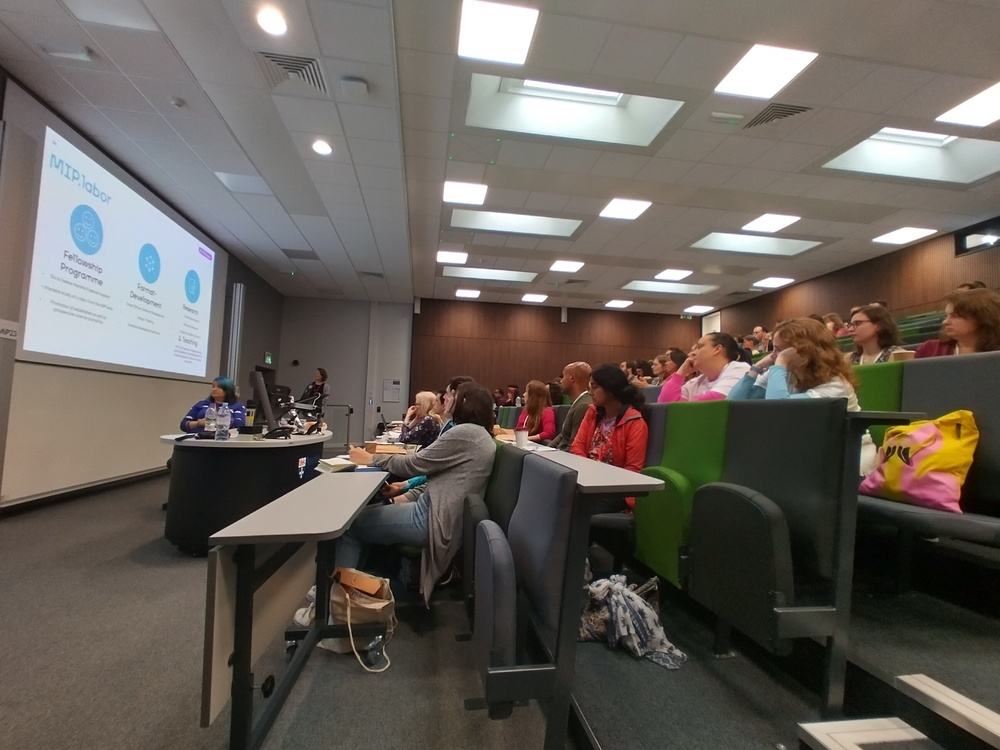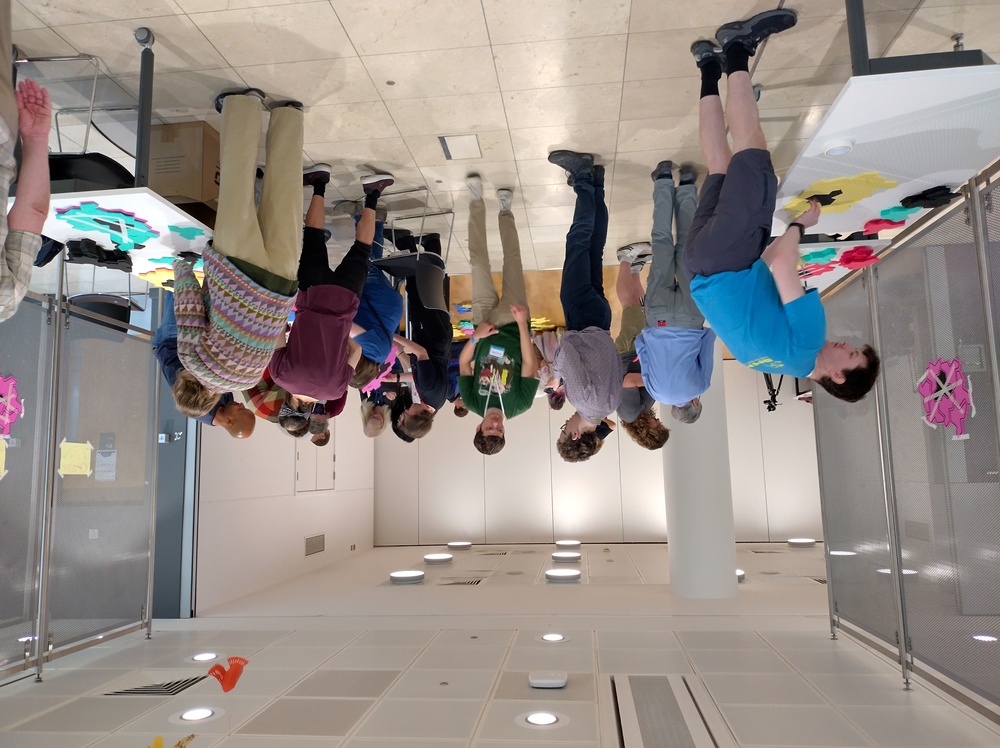About the event
A hybrid conference for an audience of maths communicators. Many attendees were academics in UK higher education but there were a significant number of attendees from other backgrounds. Many attendees disclosed access requirements, including impaired mobility; impaired vision; impaired hearing; caring responsibilities for a breastfeeding child; autism; dietary requirements.
- Date
31st August - 2nd September 2023
- Location
Herschel building, Newcastle University
- Organising committee
Kevin Houston, Katie Steckles, Sam Durbin, Ben Sparks, Christian Lawson-Perfect (local organiser), Peter Rowlett.
Questions and Answers
What aspects of accessibility did you focus on at this conference, and why?
Physical access to the space: can attendees get to the venue and move between the rooms independently and comfortably? Also checked physical access to the venues for social evening activities and made sure that we only used venues with step-free access.
Travel: checked which forms of transport attendees can use to get to Newcastle and then to the venue. Checked walking distances between venues and recommended hotels.
Comfort: quiet room; detailed information given out in advance.
Access to the talks and activities: all sessions recorded and available to re-watch; all rooms had hearing loop;
Dietary requirements: several delegates disclosed dietary requirements, some of which were quite complicated. Tried our best to ensure these were met by the university catering service.
Toilets: checked for accessible toilets on each floor, and for male, female and gender-neutral toilets.
How did you ensure that the conference venue was physically accessible?
Walked from the planned starting point for delegates (outside Haymarket metro/bus station) into the building and to each of the rooms, checking step-free access and for automatic doors. I found that the rooms on the fourth floor couldn’t be accessed without pushing open heavy double doors.
What communication about accessibility did you provide leading up to and during the conference? Were any changes made to the online registration process (inc. asking about accessibility needs)?
Detailed information about the location of the conference venue, suggested ways of travelling to it from different arrival points and with different modes of transport.
I recorded a video of myself moving from the building’s main entrance to each of the rooms we’d be using, and showing nearby toilets.
The registration form linked to our published accessibility information and asked if the attendee had any needs that weren’t already catered for.
What adjustments did you make when arranging catering, to aid inclusion and accessibility?
We gave the list of specific dietary requirements to the catering service.
We also asked them to provide a full list of ingredients for each item, to help delegates with rare allergies. They didn’t do this.
Did you provide any additional signage during the conference?
Yes: I put sandwich boards outside the building, with the conference’s logo and arrows pointing to the main entrance.
Inside, I put up A4 paper signs with arrows and labels for each of the rooms we were using, outside each room and in the stairwells and lifts.
Were any accessibility adjustments made during sessions?
All speakers used a microphone.
There was a facilitator who was instructed to repeat any question asked by the audience.
We gave speakers some instructions on accessible presentation techniques: describing verbally what’s on slides; accessible text size and colour contrast in slides; only speaking while facing the audience; etc.
Was the conference online, in person, or hybrid?
Hybrid. We hired a dedicated hybrid facilitator who passed on any questions from the online audience and worked with organisers to solve problems.
Did you provide any additional accessibility support, such as a sensory room or childcare, or by signposting to central NU services like prayer rooms, quiet rooms, nursing rooms?
We offered a quiet room close to the main lecture theatre.
We signposted the nursing room.
Were there any barriers to accessibility that arose during the conference?
The catering service failed to deliver food that was clearly labelled with all ingredients, and mixed up different kinds of food. Several attendees chose to buy their own lunches instead of taking their chances with the provided food, since they couldn’t trust that it had been accurately labelled.
Final reflections: Is there anything you would do different next time?
I would try not to use the university’s catering service!
What is your message for other conference organisers about accessibility?
Take it seriously and plan for it from the start.
Giving lots of information in advance not only helps attendees understand what to expect, it also helps you to identify potential problems.
It’s hard to imagine all the accessibility needs that your attendees might have. Making it clear that you want to hear about access needs and are willing and able to act on them will improve the quality of information that you get.
Photos
-

A keynote presentation.
-

A social activity in the City library, with members of the public welcome to join in.